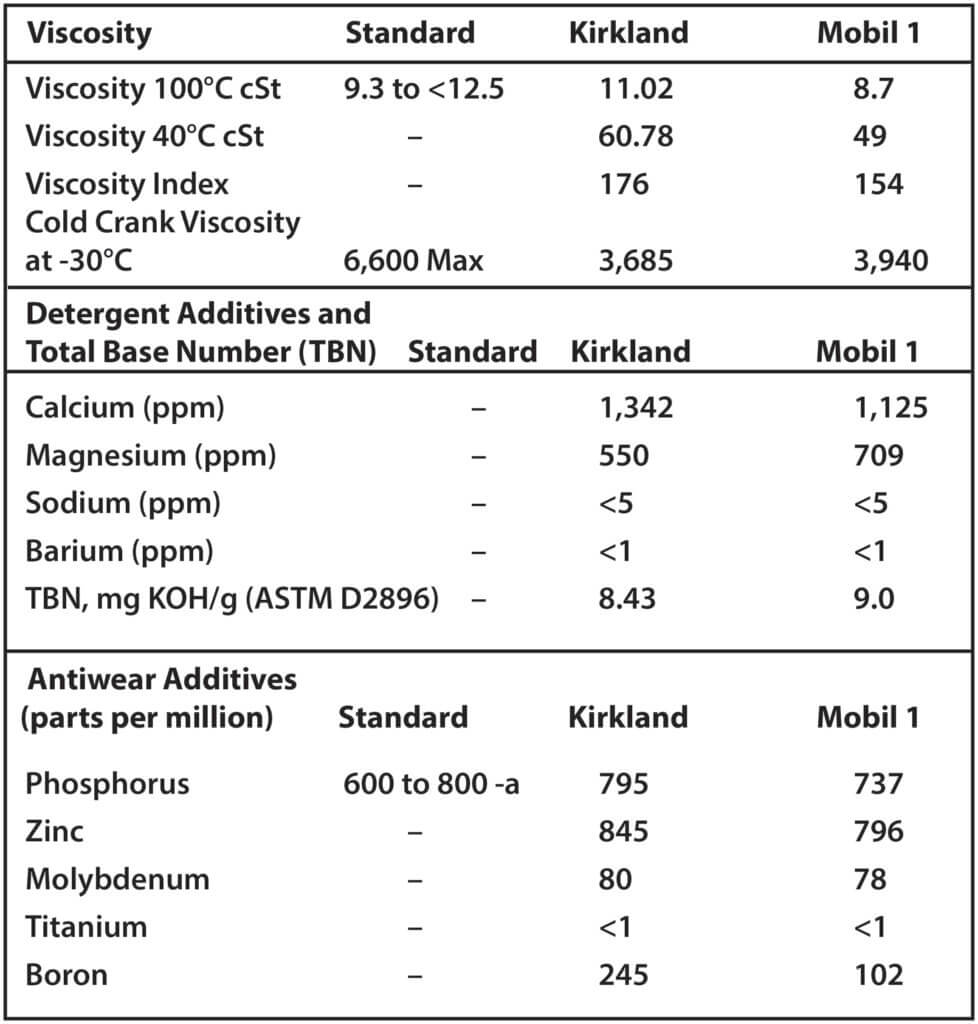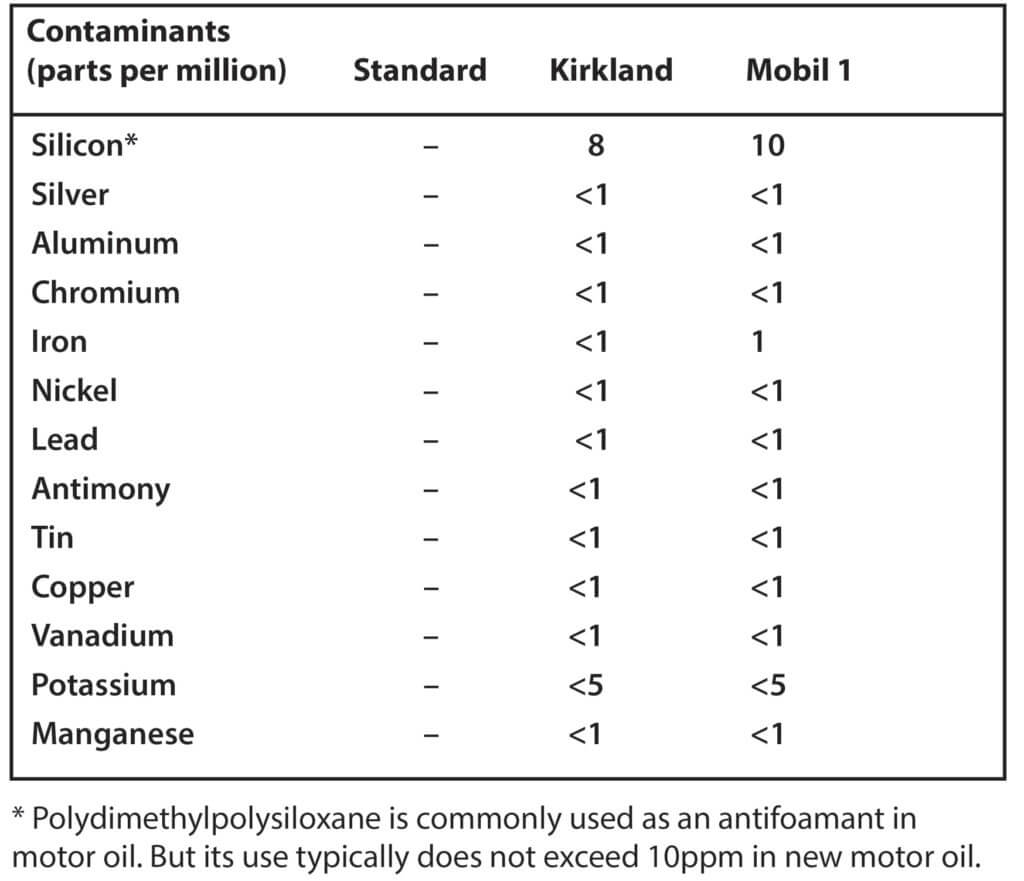Kirkland Signature Synthetic Motor Oil
Kirkland Signature Synthetic Motor Oil — is it any good?
Yes, Kirkland Signature Synthetic Motor Oil is a very good budget priced product from Costco. The product appears to be blended by Warren Oil Company a large independent oil blender.
What is an oil blender?
Not all big motor oil brands are made by oil refiners. Valvoline, for example, does not operate a refinery, yet they’re a major seller of synthetic motor oil. A blender purchases their base oil on the open market from one or more refineries and then adds their own additive package to the base oil.
What is a base oil?
There are five oil base groups, numbered one through five.
Group I base oil— This base oil has less than 90 percent saturates, greater than 0.03 percent sulfur and with a viscosity-index range of 80 to 120. The temperature range for these oils is from 32°F to 150°F, making them incompatible with internal combustion engines. Group I base oils are solvent-refined, which is a simpler refining process. Group I oils are the least expensive oils on the market.
Group II base oil— This base oil has more than 90 percent saturates, less than 0.03 percent sulfur and with a viscosity index of 80 to 120. The refining process used is hydrocracking. Since all the hydrocarbon molecules of these oils are saturated, this oil has better antioxidation properties. They also have a clearer color and cost more in comparison to Group I base oils.
Group III base oil— Group III base oils are greater than 90 percent saturates, less than 0.03 percent sulfur and have a viscosity index above 120. Group III oils are refined using a severe refining process like catalytic cracking, hydro-isomerization, and catalytic dewaxing, or by polymerization processes—which technically qualifies them as “man-made” because they’re made from “synthesized molecules.”
Severe refining results in a high purity, light color, low sulfur, and low unsaturated oil similar to PAO oil. In other words, Group III oil may look and act like the original “synthetic” PAO/ester oils, but they’re not the same.
Group IV— Group IV base oils are polyalphaolefins (PAOs). These synthetic base oils are made through a process called synthesizing. They have a much broader temperature range and are great for use in extreme cold conditions and high heat applications.
Group V base oil— Group V includes silicone, phosphate ester, polyalkylene glycol (PAG), polyolester, biolubes, etc. These base oils are at times mixed with other base stocks to enhance the oil’s properties. An example would be a PAO-based compressor oil that is mixed with a polyolester.
Esters are common Group V base oils used in different lubricant formulations to improve the properties of the existing base oil. Ester oils can take more abuse at higher temperatures and will provide superior performance.
What’s the definition of “synthetic” motor oil?
In strictly technical terms, synthetic oil is a Group IV oil made from PAO/ester. HOWEVER, due to the extremely high tech way Group III oils are made, they qualify as “man-made” and can be called synthetic.
For more information on the debate over the definition of synthetic oil, see this post
Back to Kirkland Signature motor oil — How does it compare?
The Petroleum Quality Institute of America (PQIA) conducts independent testing of consumer, commercial, and industrial lubricants. Here are their test results comparing Kirkland Signature motor oil to Mobil 1.


So you can see that Costco’s Kirkland Signature Motor Oil compares favorably with Mobil 1 synthetic motor oil.
©, 2021 Rick Muscoplat
